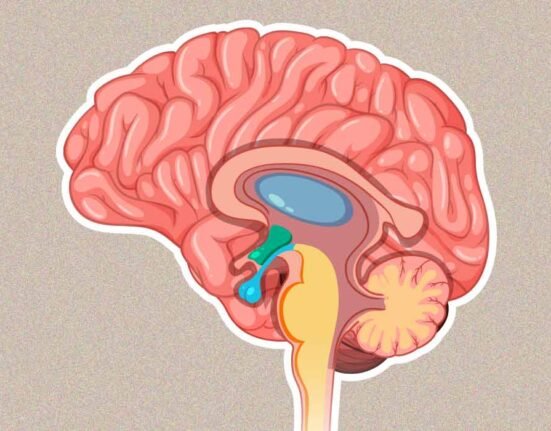Psychoneuroimmunology is a multidisciplinary field that has come into existence in recent times. It studies the interactions among behaviour, the nervous system, the endocrine system, and the immune system (Brannon et al, 2014). Studies in psychoneuroimmunology often show a bidirectional relationship between the physiological systems and behaviour. Therefore, the effects of this interaction could be categorized into two types – the environment-brain-behaviour-immune effects and the immune-brain-behaviour effects.
Environment-Brain-Behaviour-Immune Effects
The existence of a complex brain-immune network suggests that the immune system should at least be partially influenced by psychological processes. Four psychological processes that impact immune responses include learning, psychological stress, emotions, and sensory processes (Zacharie, 2009).
Read More: General Adaptation Syndrome: How Your Body Responds to Stress
Learned Immune Responses
Pavlov’s experiments on classical conditioning conducted in the early 1900s inspired Ader and Cohen to ask an important question that led to the birth of psychoneuroimmunology – “Could classical conditioning also influence the functioning of physiological processes as seemingly “invisible” as the immune system?” (Zacharie, 2009). In 1975, Ader and Cohen followed in the footsteps of Pavlov and conducted an experiment where they paired a conditioned stimulus (CS) with an unconditioned stimulus (UCS) to see whether the conditioned stimulus alone would later produce a conditioned response (CR). In their study, the conditioned stimulus (CS) was a solution of saccharin and water that rats drank, and the unconditioned stimulus was the administration of an immunosuppressant.
During the conditioning, the rats first drank the saccharin solution and were then injected with the immunosuppressant. Like Pavlov’s dogs, the rats in this experiment quickly associated the unconditioned stimulus (immunosuppressant) with the conditioned stimulus (saccharin solution), such that they showed immune suppression when they were administered only the saccharin solution. This ground-breaking study demonstrated that the immune system also showed the same type of associative learning as other body systems. (Brannon et al, 2014).
Stress and Immunity
The effects of stress on the immune system can be observed through three pathways – the Peripheral Nervous System, the Secretion of Hormones, and health behaviours. The peripheral nervous system provides connections to immune system organs such as the thymus, spleen, and lymph nodes. The brain can also communicate with the immune system through the production of releasing factors that stimulate endocrine glands to secrete hormones.
These hormones travel through the bloodstream and affect target organs, such as the adrenal glands, which then release cortisol. Elevated cortisol is associated with several physical and emotional distress conditions and exerts an Anti-inflammatory effect. Cortisol and glucocorticoids tend to depress immune responses, phagocytosis, and macrophage activation.
Communication also occurs in the other direction. The immune system can signal the nervous system, particularly the Peripheral Nervous System, through certain chemicals called cytokines. These chemicals secreted by the immune cells help modulate the immune response by aiding cell-to-cell communication and stimulating the movement of cells towards sites of inflammation, infection, and trauma.
This interconnection makes possible bidirectional interactions of immune and nervous systems and may even enable effects on behaviour such as fatigue and depression, which are common symptoms of sickness. Stress can also result in an increased occurrence of unhealthy behaviours such as alcohol use, smoking, and changes in eating and sleeping patterns. Such behaviours could also compromise the functioning of the immune system (Brannon et al, 2014).
Immune modulation by emotions
Emotions – negative and positive – are essential psychological mechanisms playing an important role in adaptive purposes in behaviour regulation. Therefore, one could expect that changes in emotional state can be reflected as changes in the immune system. This hypothesis is supported by findings showing that experimentally induced emotional states can affect immunological and inflammatory parameters (Zacharie, 2009).
A recent review of literature also showed that psychological well-being has been associated with an increase in immune response as observed in the improvements of indicators in saliva, blood, and plasma. It was also observed that psychological ill-being was associated with a decrease in immune response (Abdurachman & Herawati, 2018).
Voluntary Modulation of the Immune System through Sensory Processes
So far, we have seen that the psychoneuroimmunologic phenomena are a result of the “autonomic” or non-voluntary activity in the nervous system. However, the idea that the immune system can be influenced by voluntary, conscious processes should also be considered. There is growing evidence that this may indeed be possible by altering sensory perception through various psychological techniques such as guided imagery or hypnosis (Zacharie, 2009).
For instance, in research conducted at UCL, four studies showed that participatory music-based interventions reduced pro-inflammatory responses and showed improvements in depression, and mental and social well-being, and therefore, impacted both biological and emotional responses (Fancourt et al, 2019).
Immune-brain-behaviour effects
As stated earlier, the interaction between the nervous system and the immune system is bidirectional. Therefore, we could expect some form of “feedback loop” from the immune system to the brain. Consider the last time you were sick. How did you feel? Energetic or exhausted? Did you want to go out and have fun or stay in and rest? Did you feel excited or a bit sad, maybe? Your answers could be explained by the findings from the cytokine-induced sickness behaviour studies.
Infected individuals show depressed activity, loss of interest in their environment, and reduced food intake. These behaviours are associated with the subjective association of infection with fatigue, depressed mood, and increased pain sensation. These changes are seen as an expression of a motivational state supporting the adaptive physiological changes in the response to the infection. For example, the increased body temperature during fever leaves no energy for draining activities that do not help fight the infection. Protective strategies like this one are critical for our survival (Zacharie, 2009).
The Indian take on PNI
In the Indian tradition, the Sankhya philosophy postulates that the desire for existence (life) caused the beginning of the universe. According to this philosophy, the mind exists first and forms the body. Mind and body are seen as inseparable entities. The mind/soul is fixed in the body, depending on the body’s health for the quality of its expression. At the same time, the perversity of the mind is seen as the ultimate cause of every disease. Ayurveda, or the study of longevity, draws from the Sankhya philosophy. In this system, disease and illness are seen as occurring due to imbalances in the doshas.
Doshas are the active condensations of the five great elements of nature (i.e., air, space, fire, water, and earth). The tridoshas in the body include vata, pitta, and kapha. Vata directs all motion, Pitta oversees transformations, and Kapha is the stabilizing influence. When appropriately balanced, the doshas help in sustaining good health and bodily function. The imbalance of the doshas can be avoided by adhering to a daily and seasonal routine of activities. Treatments to balance the doshas rely on sensory stimulation through massages, aromatherapy, music, etc., purification through procedures such as enema, and emesis, and medicines including not only substances but also “appropriate” thoughts – all aimed at balancing the doshas (Daruna, 2004).
In conclusion, the new discipline of psychoneuroimmunology is a valuable addition to the biopsychosocial model of health. Further research in this field could lead to a more comprehensive model of health.
Read More Articles from Psychologs
- The Five-Factor Model of Personality: All You Need To Know
- Machiavellianism
- General Adaptation Syndrome: How Your Body Responds to Stress
- How does Socializing improve your Quality of Life?
- Beatrice Wright: Pioneer of Rehabilitation Psychology
References +
- Abdurachman, & Herawati, N. (2018). THE ROLE OF PSYCHOLOGICAL WELL-BEING IN BOOSTING IMMUNE RESPONSE: AN OPTIMAL EFFORT FOR TACKLING INFECTION. PubMed, 12(1 Suppl), 54–61. https://doi.org/10.2101/ajid.12v1s.7
- Brannon, L., Feist, J., & Updegraff, J. A. (2014). Health psychology: Introduction to behaviour and health. Wadsworth Cengage Learning.
- Daruna, J.H. (2004). Introduction to psychoneuroimmunology. Elsevier Academic Press.
- Fancourt, D.E., Steptoe, A., & Carvalho, L.A. (2019). The psychoneuroimmunology of music: Modulation of psychological state, stress levels and immune response through participatory interventions. Institute of Epidemiology & Health Care.
- https://www.ucl.ac.uk/epidemiology-health-care/study/research-degrees/research-degree-epidemiology-and-health-care/past-phd-titiles/bsh-titles-8
- Zachariae, R. (2009). Psychoneuroimmunology: A bio‐psycho‐social approach to health and disease. Scandinavian Journal of Psychology, 50(6), 645– 651. https://doi.org/10.1111/j.1467-9450.2009.00779.x













Leave feedback about this